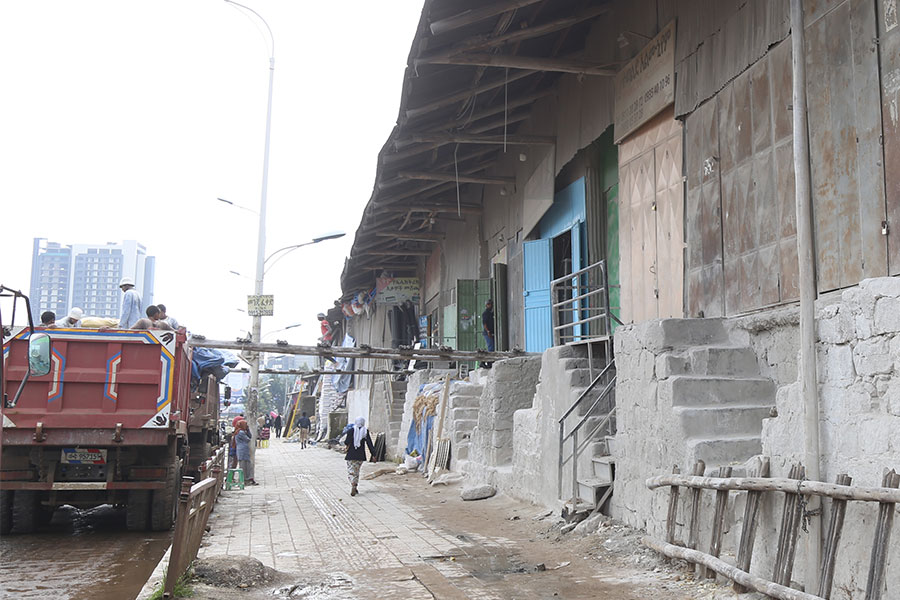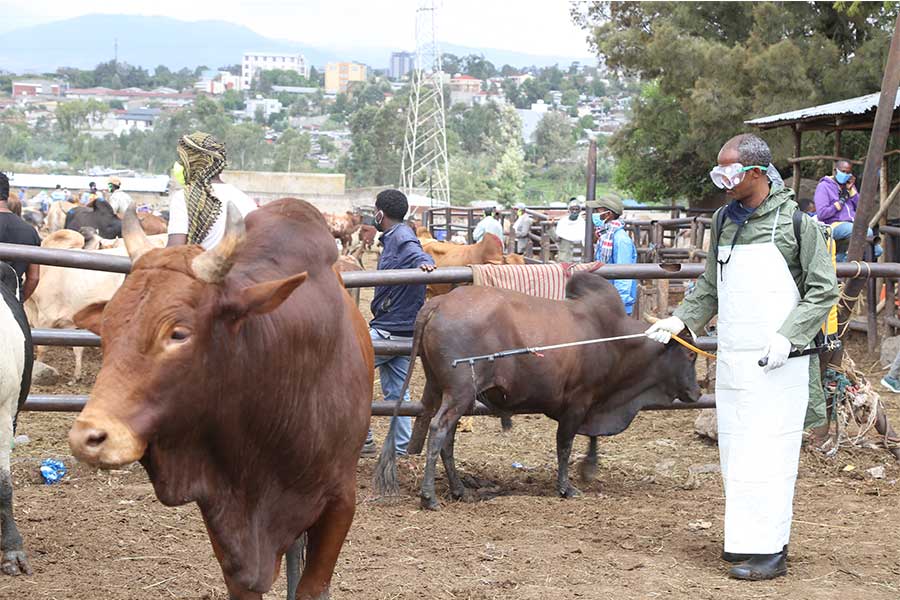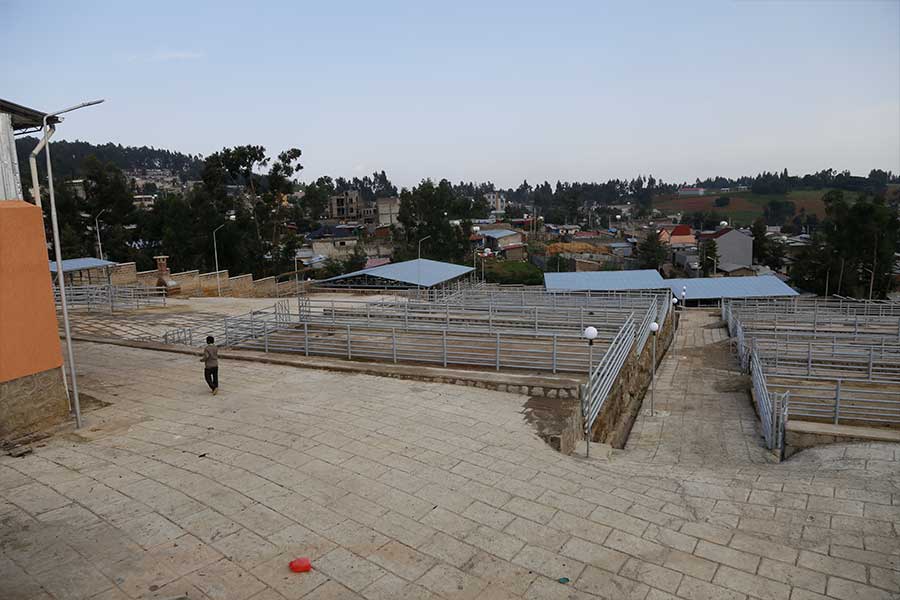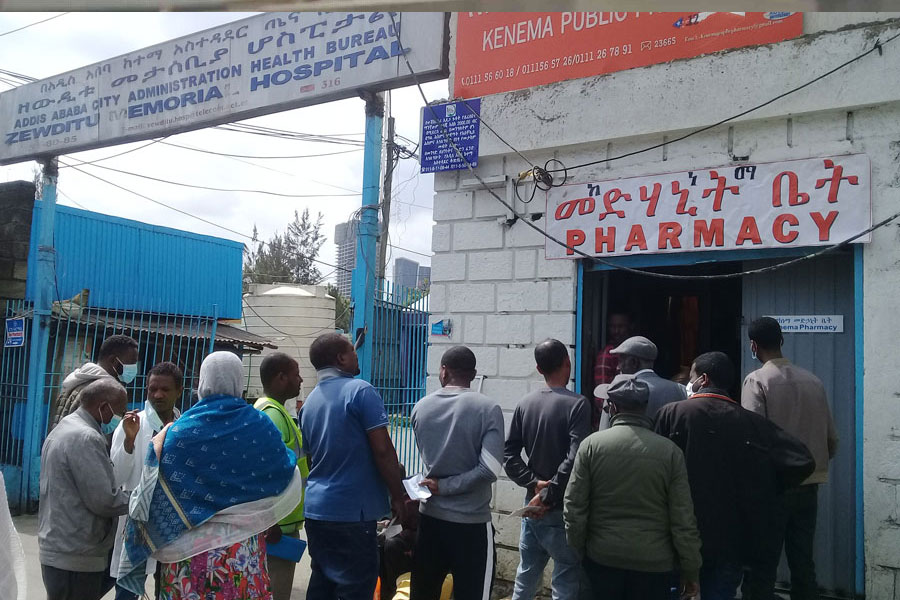
Agenda | Apr 17,2021
Ethiopia’s coffee growers and exporters are continuing to grow and brew some of the best coffees in the world. Even though Ethiopia is famed as the birth place of Arabica coffee, the industry has faced challenges in international markets. Brand identity was initially far behind competing producers such as Colombia. Pricing has proved inconsistent due to market factors. Added to that, domestic conditions including the COVID19 pandemic have required constant adaptation by local growers and exporters.
Despite these headwinds, Haileslassie Ambaye, one of the pioneer exporters of the Ethiopian coffee industry, thinks that the industry is poised for growth: “Demand for Ethiopian coffee is constant with a slight growth trend. It is crucial that Ethiopian coffee continue to build on the features of our coffee that have made it famous. We cannot however allow domestic market challenges to harm the export market, which remains highly interested in the flavour profile of our coffees.”
Haileslassie Ambaye should know about brand identity. He is famed in the Ethiopian coffee industry for his relentless vision of Ethiopian coffees as high-end specialty coffees in a career that started over 20 years ago. His most recent export company, Haileslassie Ambaye Industrial PLC, was started in 2002 and is considered a top specialty niche player in the market. Far smaller in volume in comparison to the largest exporters, it is nevertheless the exporter that has consistently achieved among the top 3 export prices for specialty high-end coffees.
“It is about building our brand concept. We need to balance national identity, the natural virtues of Ethiopian coffee, and the perception of prestige or quality in the mind of international buyers”, says Haileslassie Ambaye. For him, building high regard for the Ethiopian coffee brand is a safeguard for prices and supports expansion of international market for Ethiopian coffees: “Our coffees are famous for their natural sweetness. We need to remain focused on our strengths.”
Achieving international recognition for the quality and features of Ethiopian coffees has not been easy. For many years, the export market was primarily comprised of larger volume exporters that did not distinguish between some varietals. As an export country, Ethiopia has achieved notable success in the coffee industry. Ethiopia is the world's fifth largest producer of coffee, and Africa's top producer, with 260,000 metric tonnes in 2006. In 2019/21 only, coffee exports brought in US$905 million, which holds a major share in the country’s exports earnings. Even today, coffee remains the largest foreign exchange earner. Ethiopian coffees are exported primarily to the European Union, though the Asia and the United States are growing as export markets.
Yet the finest Ethiopian coffees were scarcely known outside of Ethiopia’s domestic market. The quality and flavour pattern of individual varieties from growing regions such as Guji, Yirgacheffe, Sidamo or Limu were not specifically identified in the export market.
The primary impediment to building an export market for high-end prestige Ethiopian coffees and the varieties of coffee from Ethiopia was the prevalence of traditional artisanal harvesting techniques among growers. HaileslassieAmbaye recalls precisely the problem, because he was the first to solve it.
Thirty years ago, farmers were limited in their ability to allow high quality coffee beans to ripen on the coffee tree before harvesting. The problem was not lack of patience among farmers; the problem was lack of funding. Farmers need for cash harvested beans (known as “cherry”) before their flavour peak because they needed cash to pay for costs and plan for the next harvest. Quality cherry beans were harvested and sold as to market as bulk. The production volume of high-quality coffees was thus highly limited, and the export market was scarcely aware of the top-quality coffees from Ethiopia. Financial constraints also prevented farmers from expanding their farms into large scale operations, which further limited supply.
The innovative solution was clear to Mr Haileslassie: loan money to the farmers to give them enough funds to wait for the cherry beans to ripen. Knowing that farmers would refuse to embrace loans if it meant taking on debtsthey with interest rates that they could not repay, Haileslassie Ambaye understood that loans had to be interest-free to have real impact among farmers.
It worked perfectly.“Sufficient financing to farmers and suppliers was the key to unlocking the potential for volume production of high-quality coffees,” said Haileslassie Ambaye.In this year only, his company has loaned up to six hundred million Birr to different coffee suppliers on interest free basis. Currently, it works directly and indirectly with 45,000 coffee farmers, which make up 120,000 coffee producing families.Today, this practice has been embraced by other producers who see the virtue in high-quality coffees in their own bottom lines.
He did not stop there. Haileslassie Ambaye’s incessant focus on quality drove him to implement training programs, quality control and processing centres to develop consistent quality cherry bean products, bought freshly and directly from the farmer and prepare it in the variety of dry or washed coffee. The dried and washed harvest of coffee is supplied to exporters.“For the past 15 years, we have been giving training during the harvest and post-harvest season by hiring agronomists,” said Haileslassie.
“Our innovative practices enabled farmers to bring quality coffee to us and make our high-quality coffee supply to the international market standardised and thereby achieve prestige brand recognition,” Haileslassie adds, “That is why our prices are higher than competing companies” These contributions to the coffee industry have not gone unnoticed. Competitors adopted his practices, and the industry and government entities praised his innovative contribution to the industry. Haileslassie Ambaye has received letters of appreciation and awards from institutions such as the Ethiopian Commodity Exchange, the Eastern African Fine Coffees Association, Awash International Bank and the Ethiopian Coffee exporters Association. He also received recognition and awards from international buyers from USA, Europe and Asia.
His company owns one of the state-of-the-art coffee cleaning and packaging factory in Addis Ababa. By giving special care to quality, his company has become one of the top three exports which garner highest coffee prices. Over the past decade, the company has been making significant profits for the country in terms of foreign currency earnings.
Not surprisingly, for Haileslassie Ambaye, the future of the industry is centres on maintaining quality and volume – even through the COVID-19 pandemic. “If we are steadfast on branding and quality, even through this difficult time, the fruits will be improved pricing and consistent demand across the industry.”
PUBLISHED ON
Apr 04,2022 [ VOL
23 , NO
1145]

Agenda | Apr 17,2021

Viewpoints | Jan 09,2021

Fortune News | Jul 30,2022

Featured | Sep 06,2020

Fortune News | Apr 17,2020

Fortune News | Jul 13,2020

Featured | Apr 26,2019

Agenda | Aug 11,2024

Commentaries | Mar 11,2023

Editorial | Aug 16,2025

Dec 22 , 2024 . By TIZITA SHEWAFERAW
Charged with transforming colossal state-owned enterprises into modern and competitiv...

Aug 18 , 2024 . By AKSAH ITALO
Although predictable Yonas Zerihun's job in the ride-hailing service is not immune to...

Jul 28 , 2024 . By TIZITA SHEWAFERAW
Unhabitual, perhaps too many, Samuel Gebreyohannes, 38, used to occasionally enjoy a couple of beers at breakfast. However, he recently swit...

Jul 13 , 2024 . By AKSAH ITALO
Investors who rely on tractors, trucks, and field vehicles for commuting, transporting commodities, and f...

Oct 18 , 2025
The political establishment, notably the ruling party and its top brass, has become p...

Oct 11 , 2025
Ladislas Farago, a roving Associated Press (AP) correspondent, arrived in Ethiopia in...

Oct 4 , 2025
Eyob Tekalegn (PhD) had been in the Governor's chair for only weeks when, on Septembe...

Sep 27 , 2025
Four years into an experiment with “shock therapy” in education, the national moo...